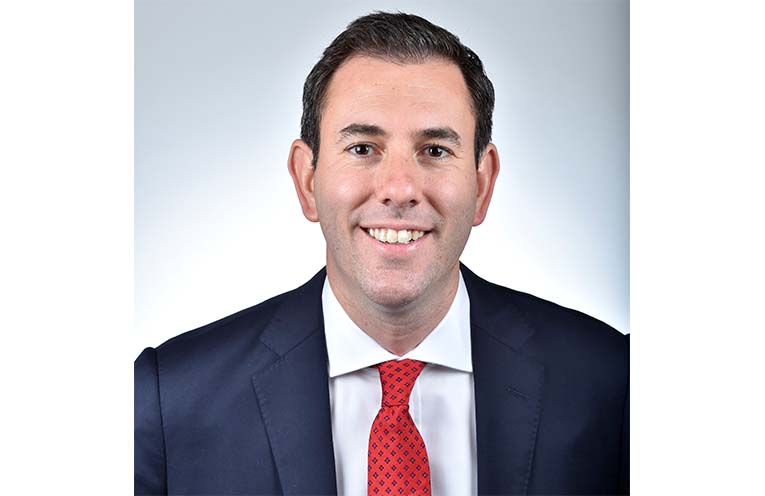
MEMBER for Paterson Meryl Swanson described last week’s Federal Budget as one which “delivers for every taxpayer” in the electorate, but how have the various business sectors and special interest groups across the country reacted?
Ms Swanson highlighted that all 75,000 taxpayers in Paterson will be better off as the result of a tax cut from July 1, and said the budget delivers strategies to offer cost-of-living support without adding to inflation.
 Advertise with News of The Area today.
Advertise with News of The Area today.It’s worth it for your business.
Message us.
Phone us – (02) 4981 8882.
Email us – media@newsofthearea.com.au
Locally, Ms Swason emphasised the Government’s commitment to the M1 upgrades through $112 million in further funding for the Pacific Motorway extension to Raymond Terrace, and an additional $137.5 million for the duplication of Nelson Bay Road.
The Paterson MP, now in her eighth year as the electorate’s Federal representative, spotlighted budget measures to address energy costs through rebates, and housing affordability, with $32 billion allocated for new homes nationwide, including in Paterson.
She also pointed to the wiping of student debt as a win for over three million Australians, a change expected to support 15,190 people with a HELP debt in Paterson.
Meanwhile, a freeze on the maximum cost of a PBS medicine will mean pensioners and concession card holders won’t pay more than $7.70 for their PBS medications for the next five years.
Ms Swanson also celebrated the decision to keep pathology tests bulk-billed by indexing the Medicare rebates for common medical tests.
“I am proud to be part of a government that puts people first,” Ms Swanson said.
The Australian Council of Trade Unions described the budget as good for working people, with wages forecast to rise, commitments to pay increases in the care economy, cost-of-living support on top of the July 1 tax cuts, and a historic commitment to manufacturing job creation.
The ACTU welcomed the commitment by the government to supporting wage increases in the aged care and early learning sectors, and the payment of superannuation on paid parental leave.
Leigh Shears, Secretary of Hunter Workers, said the wage increases highlighted for the early childhood and aged care sectors will be “welcomed relief and recognition for these highly feminised sectors”.
Hunter Workers Women’s Committee President Teresa Hetherington told NOTA, “Early educators and aged care workers are some of the lowest paid ($21-$30 per hour) and are female dominated sectors.
“The care economy/female dominated industries are historically undervalued.
“Despite the requirements/demands of the work and predominantly insecure work, poor bargaining capacity etc, often workers are not able to obtain a living wage.”
The union movement also welcomed the ‘A Future Made in Australia’ plan, aimed at creating secure manufacturing jobs and developing new industries as part of the government’s objective of turning Australia into a clean energy superpower.
“This announcement puts Australia back on the path to a stronger, more resilient, and more diverse economic base, and turbocharges the investment necessary to build the jobs of the future in a clean economy,” ACTU President Michele O’Neil said.
Hunter Workers Secretary Leigh Shears told News Of The Area, “A Future Made in Australia will support significant opportunities in major renewable technologies such as battery cell manufacturing, electric heavy vehicles, onshore and offshore wind power, solar panel manufacturing and domestic production of high voltage cables for renewable energy transmission.
“We’ll need thousands of skilled tradespeople over the next decade as we decarbonise our economy and transition to renewable energy powered industries.
“Hunter communities are well placed to capitalise on our region’s strengths as a manufacturing and industrial region, supporting direct and indirect secure, well-paid union jobs well into the future.”
Glen Williams, Secretary of the Newcastle Branch of the Maritime Union of Australia, said the manufacturing plan is critical for the Hunter region.
“Local manufacturing is critical to supporting Australian coastal shipping as if we don’t manufacture anything then we don’t have anything to transport around the country other than commodities.
“This would also mean more work for our stevedoring members given that a lot of the products manufactured will require product to be shipped into the port to assist the manufacturing process and ultimately loaded onto a ship for transport to an Australian or International port.
“The increased shipping in the port also then provides work for many workers across the port and along the supply chain.”
Federal Member for Lyne Dr David Gillespie, in an opinion piece released last week, said Jim Chalmers’ budget offered no genuine solutions for the nation’s major issues.
“Home-grown inflation is biting,” he said.
“I know many people are struggling to pay their bills.
“Out of control temporary migration is creating housing shortages and driving inflation and high rents.
“Labor’s renewable-only and green energy ‘greenwash’ policy has seen a double digit increase in the cost of electricity.
“Overbuilt renewables require overbuilt grids costing over $1 trillion to build, in the process, destroying our environment on land and sea, as well as making our grid unstable and expensive.
“16,000 businesses have gone insolvent since 2022 and many others are struggling.
“Yet Labor continues to load up red tape and draconian industrial relations laws.
“People smugglers are back in business with 33 recent boat arrivals and more on the way, yet Labor plans to cut $436 million in funding from border security.
“Jim Chalmers’ budget on Tuesday did nothing to deal with these issues.
“In fact, under Labor things will only get worse,” Dr Gillspie said.
In the agriculture space, NSW Farmers President Xavier Martin said Treasurer Jim Chalmers had failed to incorporate fair funding for farmers within the budget, with the sector facing a range of increasing costs and challenges to production.
“Make no mistake – farmers are all for improving traceability, but for a federal mandate, we need federal funding to ensure farmers aren’t left out of pocket as we progress complying with traceability reforms for our sheep and goats,” Mr Martin said.
“The Federal Government must find better solutions to fund our biosecurity models other than just a double tax on farmers, and we would happily return the $107 million recently announced to shut down Australia’s live sheep export trade by sea if it meant we could keep this industry operating.”
Australian Medical Association (AMA) President Professor Steve Robson said “patients and families around the country” would share a sense of disappointment after hearing the delivery of the budget.
“We’ve seen significant investment in urgent care centres with really no evaluation of whether they achieve anything.
“We know there are general practices around the country that would benefit from the funding and probably be able to open for longer and offer the sort of services that are available through the so-called urgent care centres.
“We’ve also had a huge missed opportunity around the MyMedicare system.
“We know that rates of mental health conditions, we know that rates of chronic disease are skyrocketing around the country and there was the opportunity tonight to breathe some life into the MyMedicare system and deliver funding.
“That hasn’t happened.”
Full Stop Australia meanwhile said the budget was a missed opportunity to address the gendered violence crisis.
“There is no new funding for frontline services, particularly for specialist sexual violence services,” said Full Stop Australia CEO Karen Bevan.
“There are huge funding gaps across response and recovery programs, which is where the critical work is done providing support to victim-survivors.”
The budget also failed to address the ongoing health care inequity between rural and urban Australia, according to the National Rural Health Alliance.
“The Budget falls short of our expectations,” said Chairperson Nicole O’Reilly.
“It is disheartening to observe the government’s lack of responsiveness to rural voices and its failure to commit to comprehensive reforms that would offer sustainable and long-term benefits for rural communities.”
People with Disability Australia (PWDA) says the budget delivered some cost-of-living relief but missed the mark on the systemic reform needed to support people with disability fully participating in the community.
PWDA President Marayke Jonkers has called the increases to income support payments a step in the right direction but said more was needed.
“PWDA welcomes the ten percent increase to Commonwealth Rent Assistance and the higher rate of JobSeeker,” Ms Jonkers said.
“This demonstrates some recognition of the disproportionate cost-of-living pressures for people with disability.
“However, minimal growth for Disability Support Pension recipients is disappointing.”
Readers, what did you think of the Federal Budget?
Email your letters to media@newsofthearea.com.au.
